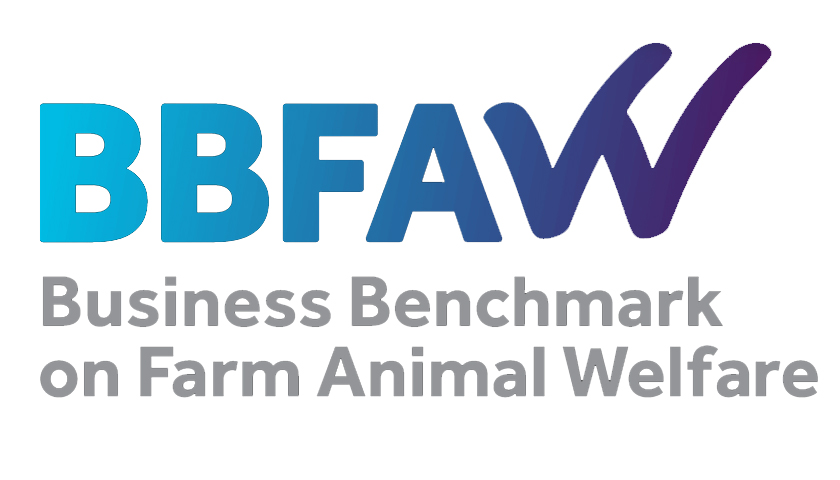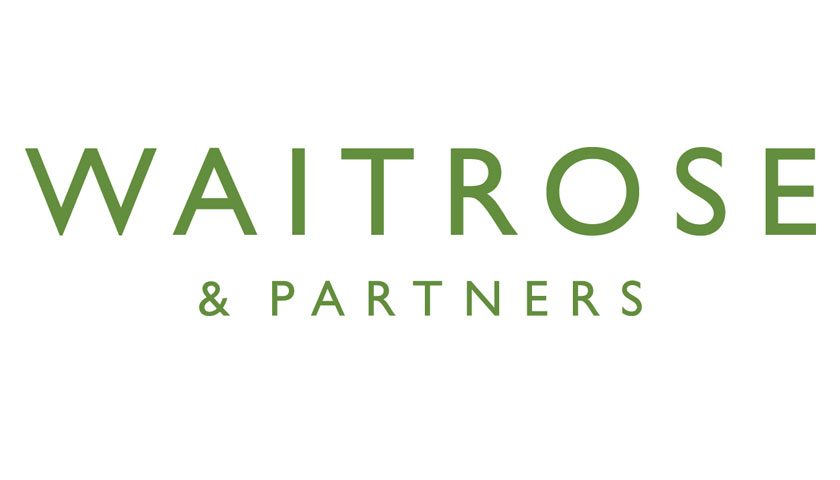The tenth annual Business Benchmark on Farm Animal Welfare (BBFAW) report, launched recently, shows UK retailers performing well with six companies ranked in the top two tiers. Waitrose and M&S successfully retain their Tier 1 positions for the 8th and 9th consecutive years, respectively, alongside producers Noble Foods and Premier Foods. However, the report also reveals that while companies continue to invest in farm animal welfare, they are too slow in delivering meaningful welfare improvements for animals on the ground.
BBFAW – the leading global measure of policy commitment, performance, and disclosure on farm animal welfare in food companies – is supported by founding partner, Compassion in World Farming, and supporting partner, FOUR PAWS, and is designed to help drive higher farm animal welfare standards in the world’s leading food businesses and provide a benchmark to inform investor choices.
The 2021 report analysed 150 global food companies, including 53 Retailers and Wholesalers, 62 Producers and Manufacturers and 35 Restaurants and Bars. In the top two tiers, British companies perform well; all six Retailers and Wholesalers, (M&S, Waitrose, Tesco PLC, J Sainsbury PLC, Wm Morrison Supermarkets PLC, and Co-op UK), all nine Food Producers and Manufacturers and the one Restaurants and Bars company (Greggs PLC) are UK-owned.
Of the 150 companies covered by the benchmark, 134 companies (89%) now acknowledge farm animal welfare as a business issue (compared to 71% of the 68 companies evaluated in 2012), 122 companies (81%) have formal policies on farm animal welfare (compared to 46% of companies in 2012) and 119 companies (79%) have published formal objectives and targets for animal welfare (compared to just 26% of companies in 2012).
The 2021 benchmark afforded greater focus on companies’ Performance Reporting and Impact by increasing the weighting of this section from 35% to 45% of the total score available, and ranking companies ‘A-F’ on the 10 performance impact questions. Marks & Spencer PLC and Waitrose were two of only five companies who achieved a ‘B’ Impact Rating (indicating that these companies have scored 62-80% on the Performance Reporting and Impact section of the Benchmark). No company achieved an ‘A’ Impact Rating highlighting that there remains a stark disconnect between many companies’ animal welfare commitments and their subsequent impact on farm animals in their supply chains.
Steve McLean, Head of Agriculture & Fisheries Sourcing, M&S Food: “We want our customers to be confident that M&S food has been produced to the highest standards of animal welfare. Our approach starts at the farm, and we go to great lengths to work with the best farmers – those who are dedicated to quality and who take good care of their animals. We were the first retailer to develop our own animal welfare standards – M&S Select Farms – back in the 1990s and we’ve carried on improving our standards ever since. Today, we have rigorous requirements for animal welfare that exceed standard industry practice and legislation and every one of our 12,500 supplying farms must meet them to supply us. We’re proud of our approach and the fact that we’ve been in Tier 1 of the Business Benchmark on Farm Animal Welfare every year since 2013 – it is an important tool in helping us to continue to drive improvements in welfare performance across our supply base.”
Jemima Jewell, Partner & Agriculture and Responsible Sourcing Lead, Waitrose: “We’re delighted to once again be recognised by BBFAW as a global leader for farm animal welfare practices. We’ve flown the flag for higher animal welfare practices for decades, but it is down to the tireless effort and commitment of our farmers that we’ve managed to make the progress we have. Their dedication to farming to a higher standard and our close relationship with them is what sets us apart and we want to thank each and every one of them.”
Given the scale of changes introduced in 2021, it is especially noteworthy that two retailers improved their score sufficiently to increase their ranking by one tier. Mexican company Cencosud and French business, E. Leclerc, were both recognised for having scaled up their efforts on farm animal welfare.
Cencosud published an ‘Animal Welfare Declaration’, as well as a commitment to cage-free eggs in Brazil by 2028 – and provided initial reporting on progress against this commitment in its Annual Report 2020.
- LeClerc, in turn, published a new ‘Animal Welfare Approach for Own Brand Products’ document which led to improved scores across several benchmark criteria.
Both companies, however, received an Impact Rating of ‘F’ (indicating that they have scored less than 11% on the 10 impact questions of the Benchmark) suggesting that more needs to be done to deliver welfare improvements on the ground.
Overall, 11 Retailers & Wholesalers dropped a tier in this year’s Report including Walmart Inc (Tier 4 to Tier 5), Costco Wholesale Corporation (Tier 4 to Tier 5), Co-op Group Switzerland (Tier 2 to Tier 3) and METRO AG (Tier 4 to Tier 5). German retailers, ALDI Nord, and ALDI Süd both retained Tier 3 ranking, while Lidl Stiftung & Co KG fell from Tier 3 to Tier 4. The greater emphasis on Performance Reporting and Impact, is the most likely explanation for these results.
In contrast, while the main UK retailers all retained their tier rankings – Waitrose (Tier 1), M&S (Tier 1), Tesco PLC (Tier 2), J Sainsbury (Tier 2), Co-op UK (Tier 2) and Wm Morrison Supermarkets (Tier 2), these companies showed varying degrees of success in the newly published Impact Rating. Waitrose and Marks & Spencer both scored a ‘B’, while Tesco achieved a ‘C’ (having scored 44-61% in the 10 impact questions of the Benchmark) and Sainsbury’s, Morrison’s and Co-op UK were all awarded a ‘D’ Impact Rating (indicating that they scored 27-43% in the 10 impact questions). This clearly demonstrates that even high-ranking tier companies are still too slow in delivering meaningful welfare impacts on the ground.
Nicky Amos, Executive Director of the Business Benchmark on Farm Animal Welfare and Managing Director of Chronos Sustainability said: “The BBFAW set out in 2012 to put farm animal welfare on the business and investor agenda, and to significantly advance corporate management practice and disclosure on the issue. Ten years on, these objectives have been realised. Today, around 80% of the 150 companies assessed by BBFAW have strengthened their governance of farm animal welfare through formal policy commitments, objectives, and targets. While this provides a strong foundation for action, companies need to demonstrate that their investments in farm animal welfare are delivering positive welfare impacts for animals on the ground.”
Philip Lymbery, Global CEO at Compassion in World Farming said: “A decade on, it’s great to see BBFAW continue to deliver against its mission and make great progress in getting companies to invest in animal welfare. Yet, it’s disappointing that these policy commitments are not delivering meaningful improvements for animals as quickly as they should. Our focus now must be on ensuring that companies across the globe really do drive forward and deliver substantial and measurable welfare improvements for farm animals. This means making significant progress in their supply chains; for example, moving away from keeping animals in confinement systems such as cages and crates, and towards more humane and sustainable husbandry practices, to help create a food system that works for animals, people, and the planet.”

